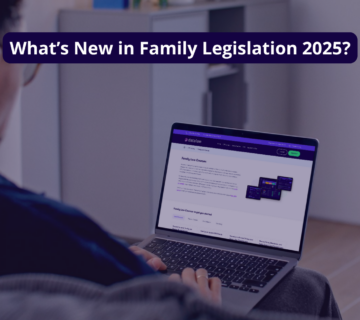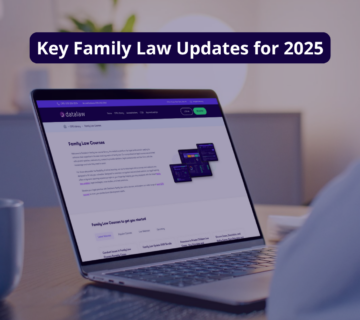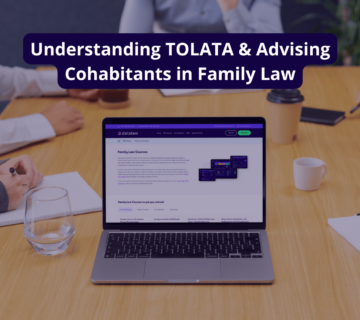The landscape of family law and divorce law is constantly evolving to reflect the changing dynamics of modern society. One area that has seen significant updates in recent years is divorce law, separation, and nullity. In this article, we will explore the key changes brought about by the new laws and take a closer look at Datalaw’s course on the subject.
For More Detailed Information:
Download our free “Understanding the New Legal Framework for Divorce Law, Separation, and Nullity” E-Book
Understanding Divorce, Separation, and Nullity
Divorce, separation, and nullity are legal processes that deal with the dissolution of marriages and the breakdown of relationships. While divorce is the most commonly known process, separation and nullity also play important roles in addressing different situations within the realm of family law.
- Divorce: Under the new law, divorce has seen several significant changes aimed at making the process smoother and less adversarial. One of the most notable changes is the introduction of a no-fault divorce system, allowing couples to end their marriage without having to prove fault or blame on either party. This change reduces animosity and simplifies the divorce process, making it more amicable.
- Separation: Legal separation allows couples to live separately without officially ending their marriage. The new law has clarified the rights and responsibilities of separated spouses, addressing issues such as financial support, property division, and child custody. It also provides an alternative for couples who may be considering reconciliation.
- Nullity: Nullity, also known as annulment, declares a marriage as invalid from the beginning, as if it never existed. The new law has expanded the grounds for nullity, making it more accessible to couples whose marriages were not valid for various reasons, such as lack of consent, bigamy, or fraud.
Datalaw’s Course on Divorce, Separation, and Nullity
Datalaw Divorce, Separation and Nullity under the New Law course specifically focuses on the new legal framework. This course is designed to equip legal professionals with the knowledge and skills required to navigate the complexities of family law in the context of these legal processes.
Key highlights of Datalaw’s course:
- Updated Content: Datalaw’s course is continuously updated to ensure that legal professionals are well-informed about the latest changes in family law. This includes the most recent developments in divorce, separation, and nullity.
- Expert Instructors: The course is taught by experienced and knowledgeable instructors who are experts in family law. They provide practical insights and guidance to help participants better understand and apply the new legal principles.
- Flexibility: Datalaw understands the busy schedules of legal professionals and offers flexible learning options. The course can be accessed online, allowing participants to study at their own pace and convenience.
- Comprehensive Coverage: The course covers a wide range of topics, including the legal grounds for divorce and nullity, financial settlements, child custody arrangements, and the implications of the new no-fault divorce system. It also addresses the rights and responsibilities of separated spouses.
The new laws governing divorce, separation, and nullity reflect a more modern and compassionate approach to family law. These changes aim to reduce conflict and provide clearer guidelines for couples facing the difficult process of ending a marriage or resolving marital issues. Datalaw’s CPD course on the subject offers legal professionals the opportunity to stay up-to-date with these changes and enhance their expertise in family law, ensuring that they can provide the best possible support and advice to their clients.



